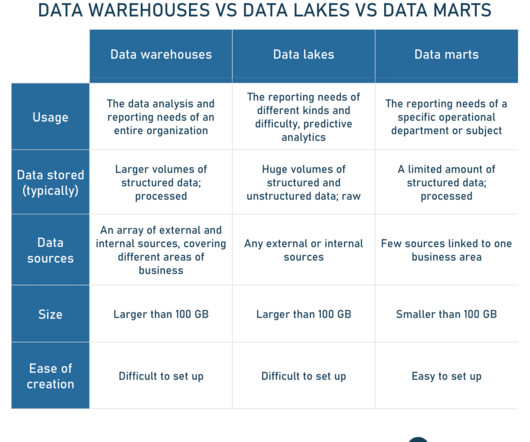Data Engineering Glossary
Silectis
JANUARY 3, 2021
Data Ingestion The process by which data is moved from one or more sources into a storage destination where it can be put into a data pipeline and transformed for later analysis or modeling. Data Integration Combining data from various, disparate sources into one unified view.












Let's personalize your content